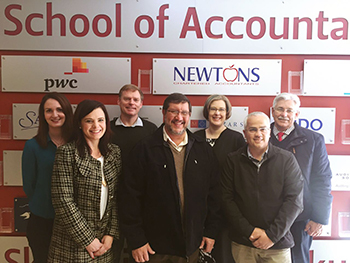Latest News Archive
Please select Category, Year, and then Month to display items
![]()
#UFSupdate (18 March 2020): UFS IMPLEMENTS MEASURES TO MINIMISE RISK OF COVID-19 TO STAFF
STATEMENT BY PROF FRANCIS PETERSEN, RECTOR AND VICE-CHANCELLOR
The executive management of the University of the Free State (UFS) welcomes the announcement of Dr Blade Nzimande, Minister of Higher Education, Science and Technology on 17 March 2020 that all post-school training institutions will have an early recess, starting on 18 March 2020. The Minister’s directive that universities should minimise risk of COVID-19 to all its staff during this time is also welcomed.
The announcement of Dr Nzimande is in line with the university’s decision on 16 March 2020 to suspend the academic programme as from 17 March 2020 and to resume it again on 14 April 2020.
It is important for us all to know that this is not business as usual, and that different thinking is required. Responsible citizenship is one of the crucial elements the world has increasingly been experiencing for the past few weeks. This is why we must act out our responsibility towards one another by focusing on ways in which social distancing can be achieved – especially during this low-risk period that South Africa is still experiencing. This is one of the reasons that informed the university’s decision on 16 March 2020 week to suspend the academic programme and also for students to vacate the residences by 20 March 2020.
The health and well-being of our staff members are equally important. The university’s Employee Task Team that was established on 16 March 2020 analysed options for the continuation of university operations during the recess period. These options were submitted to the executive management, discussed with the Chairperson of the UFS Council and approved on 18 March 2020.
Staff members who have children at school and pre-school may work from home on 19 and 20 March 2020. For the period 23 March 2020 to 13 April 2020, the number of staff members present on all three campuses will be reduced to a minimum and staff members may be allowed to work from home where practically possible.
Arrangements have been made to accommodate those staff members who are performing services which cannot be done from home (such as cleaning, gardening, maintenance, sports, etc) in a flexible and reasonable way. Similar arrangements will be made with office-based support services staff, prioritising institutional needs and based on humane and personal circumstances. Academic staff have been requested to ensure that the online learning materials are finalised and made available for the online learning platform.
The decision for employees to work from home is based on the premise that all employees are deemed to be at work from 23 March 2020 to 13 April 2020. This requires staff members to be available and contactable by line managers at all times during the university’s normal working hours.
I am comfortable that these measures will alleviate the concerns from our staff regarding the spreading of COVID-19 and the risk to themselves without compromising university operations.
Prof F W Petersen
Rector and Vice-Chancellor
University of the Free State
BAccHons students achieve A+ rating in ITC exams
2017-09-07

The lecturers of the 2016 BAccHons class: Liesel Botha,
Prof Alta Koekemoer, Prof Cobus Rossouw, Mr Kobus Swanepoel,
Dr Cornelie Crous, Prof Hentie van Wyk, and Mr Shaun Watson.
Photo: Supplied
The 2016 BAccHons students in the School of Accountancy at the University of the Free State achieved a 96% pass rate in the 2017 Initial Test of Competence (ITC) examinations of the South African Institute of Chartered Accountants (SAICA). The ITC examinations took place in January and June, and of the 49 students that partook in the examinations, 47 passed.
Prof Hentie van Wyk, Programme Director of the School of Accountancy, said with these results, the School of Accountancy ranks among the top accountancy institutions in South Africa. “The UFS is one of 14 accredited universities offering the SAICA-accredited programme,” he said.
New teaching model a success
A new teaching and learning module, which was introduced by the School of Accountancy in 2013, seemed to have fuelled the success of the students, as it is now more learner-centred and introduced more structured support to students.
The same strategies will be followed for the current 2017 intake. “We achieved an average pass rate of 84.8% over the past five years and if we can build on that, it will be an achievement of note,” says Prof Van Wyk. However, students should understand that much of these achievements are in their own hands. “After leaving the UFS, they must continue with the preparations for the ITC examinations in order to guarantee their success. The ball is actually in the students’ court,” he said.
Of the African students, 91% were successful in the national examinations, while 100% of the Thuthuka bursary students passed. The average pass rate for the past five years is as follows:
2016 96%
2015 72%
2014 80%
2013 84%
2012 92%.